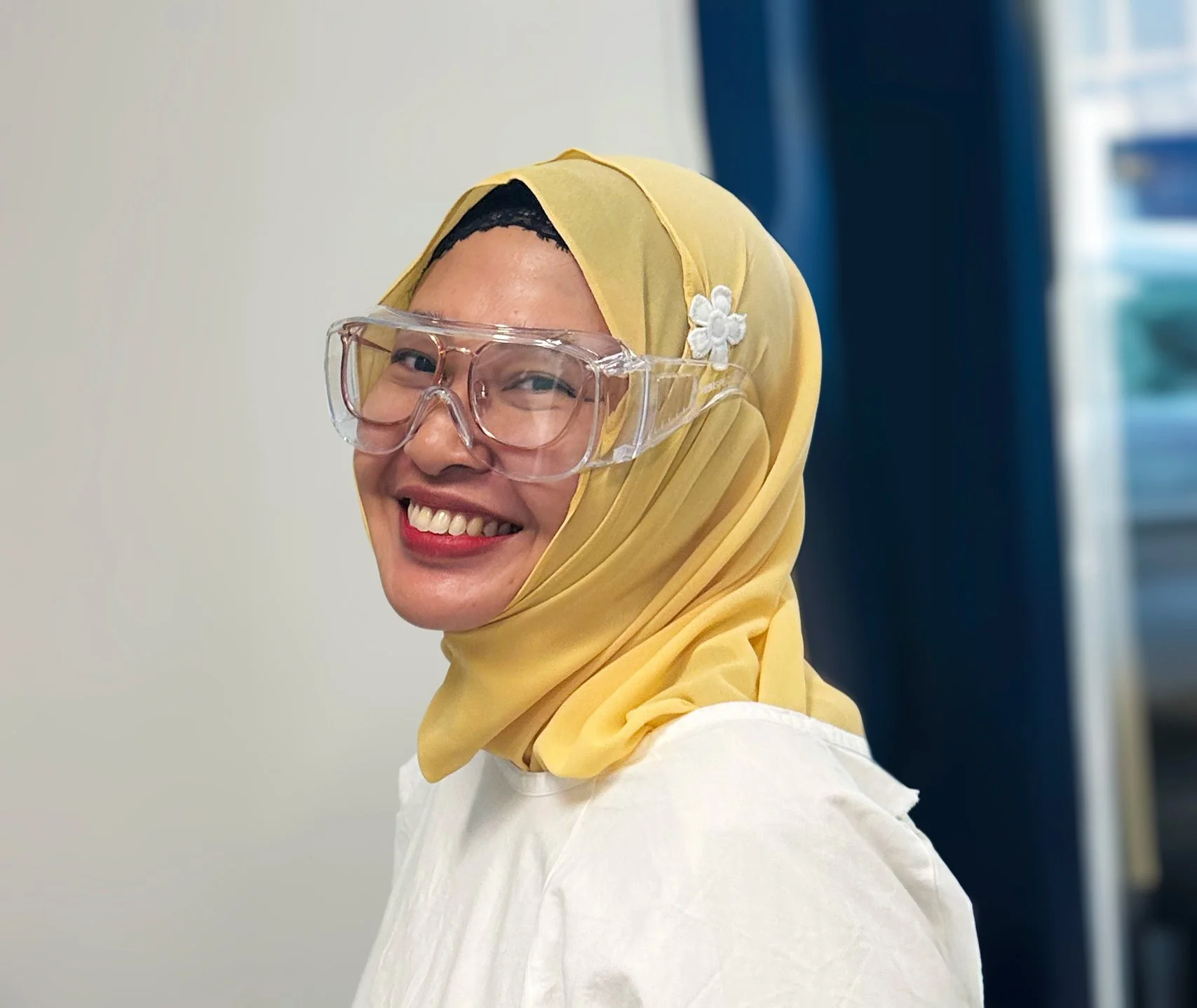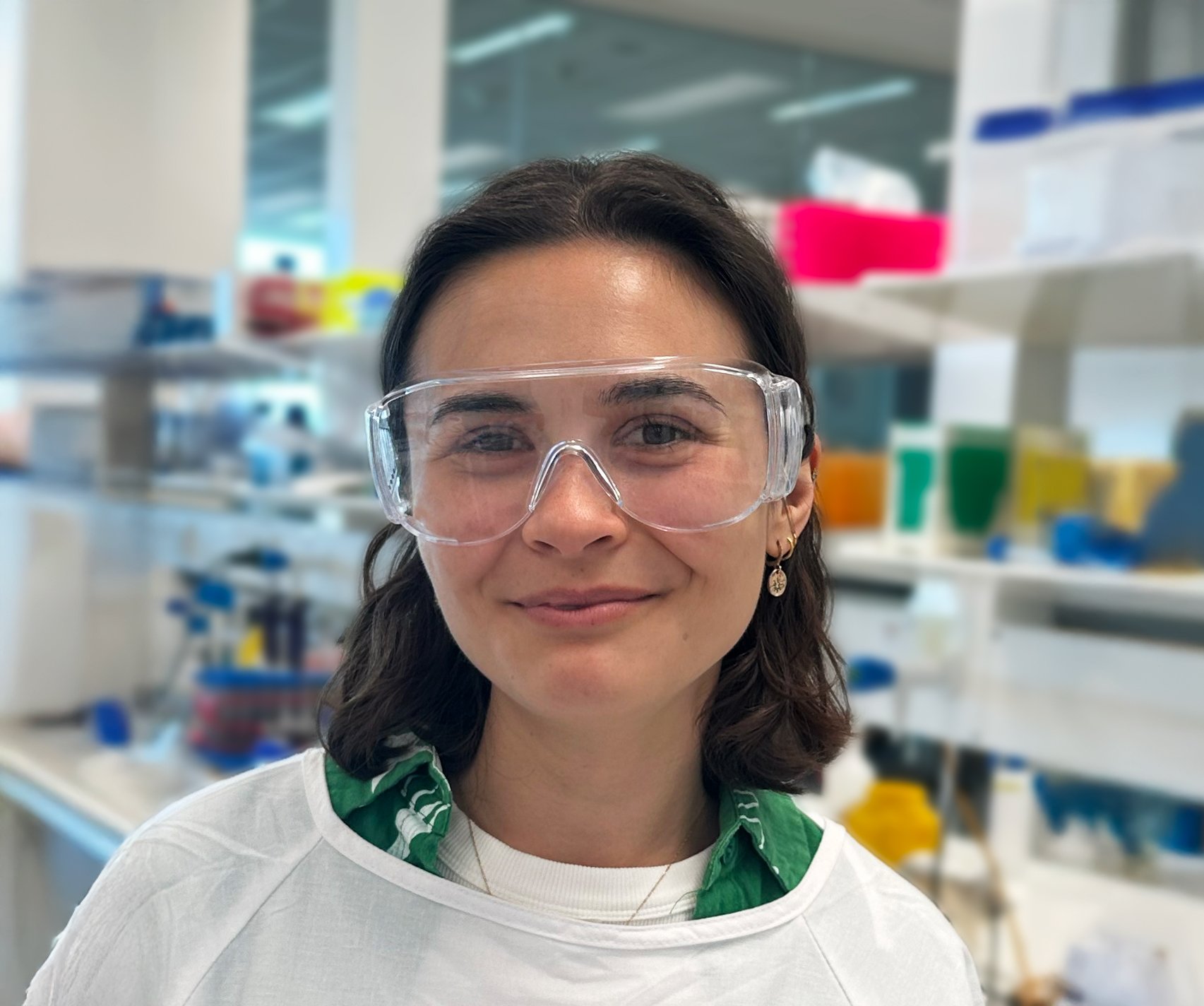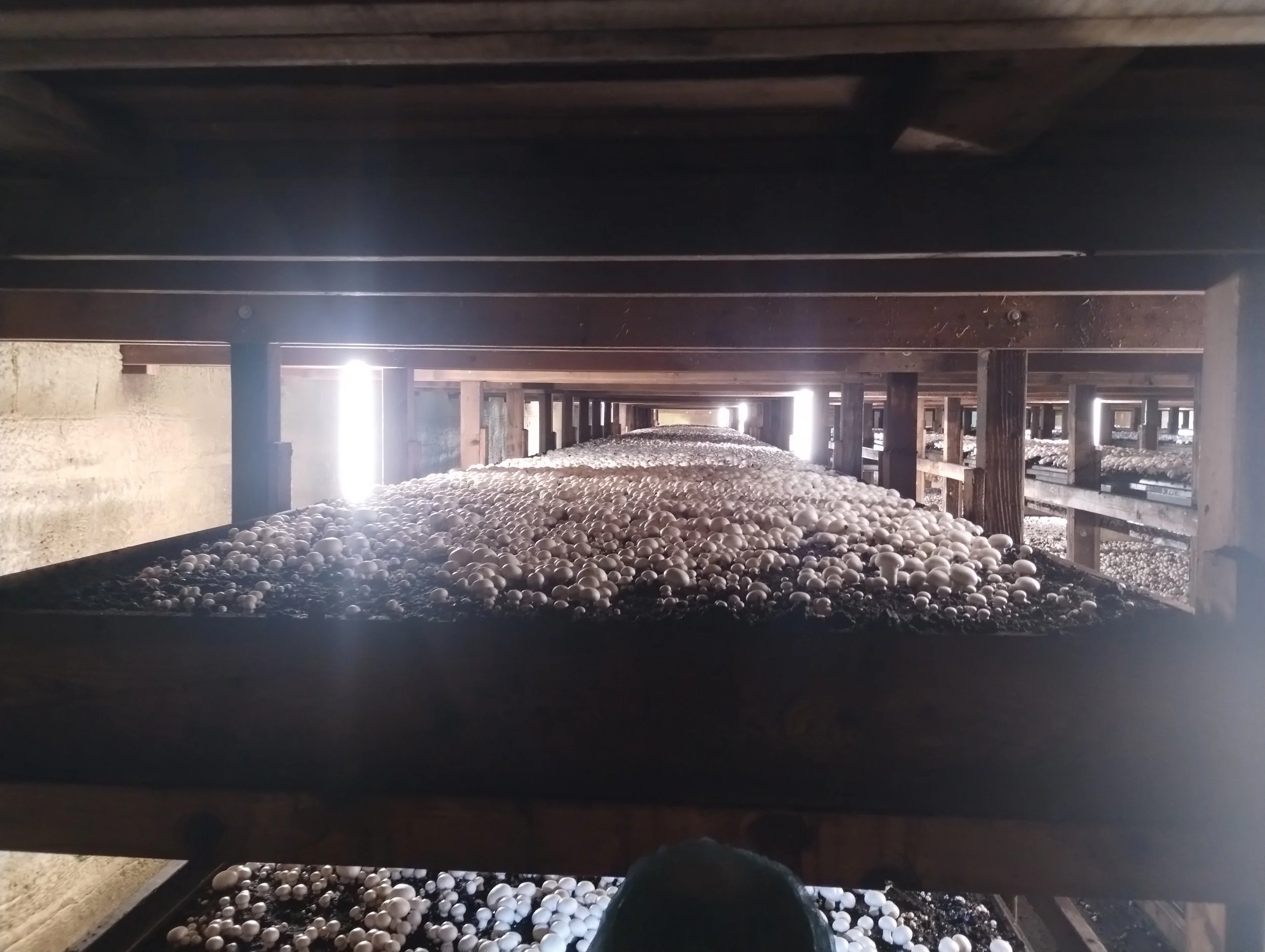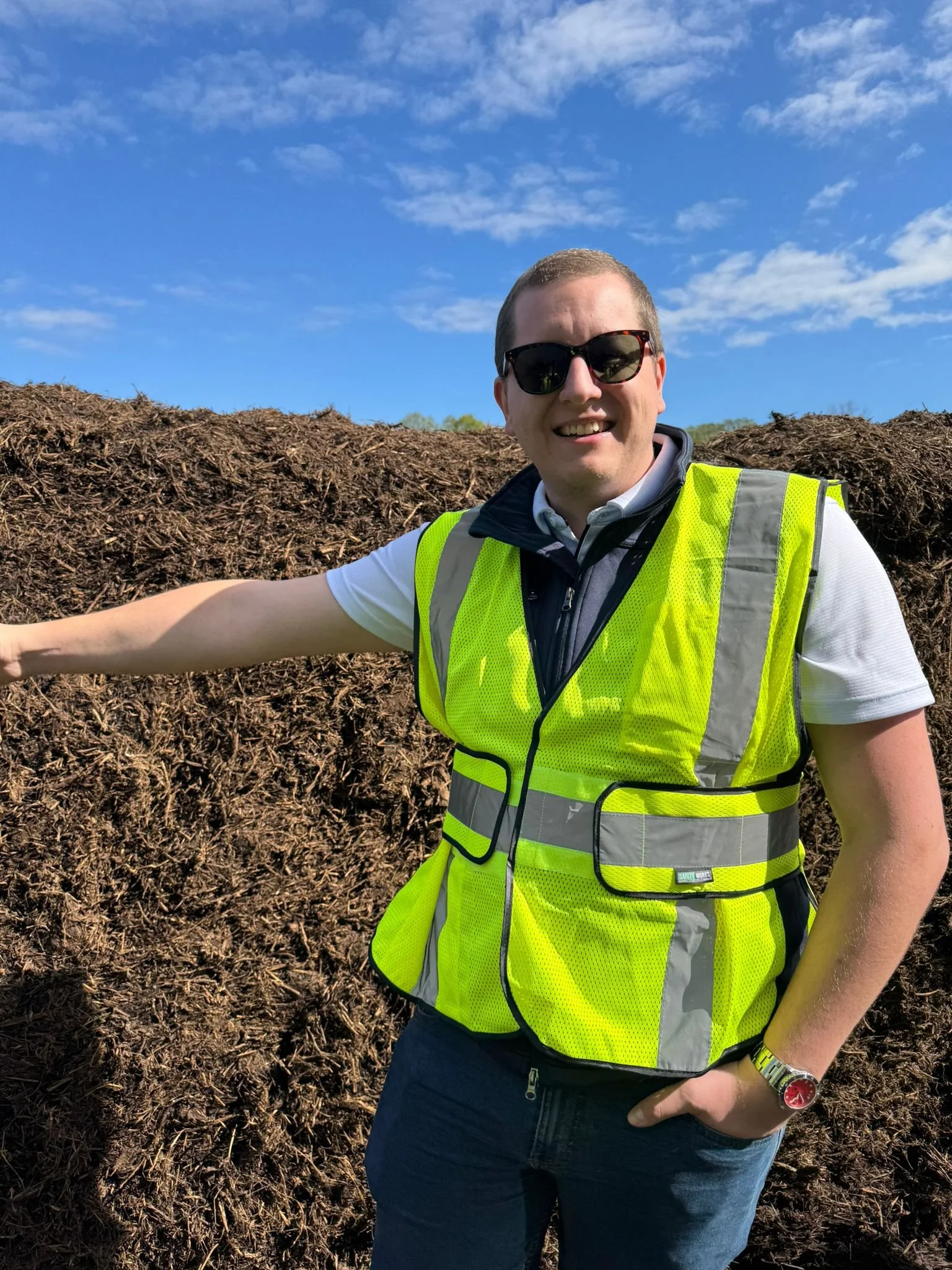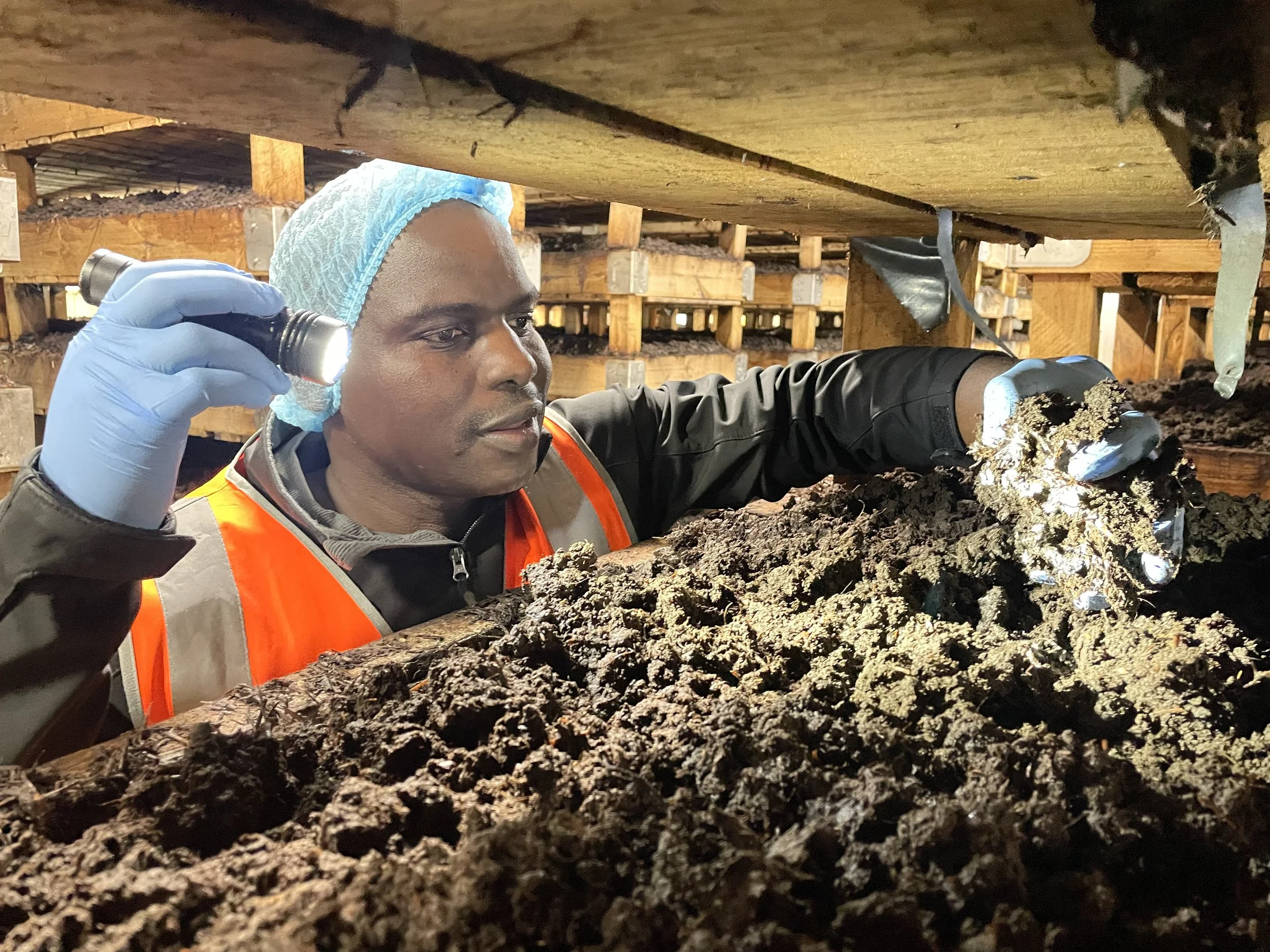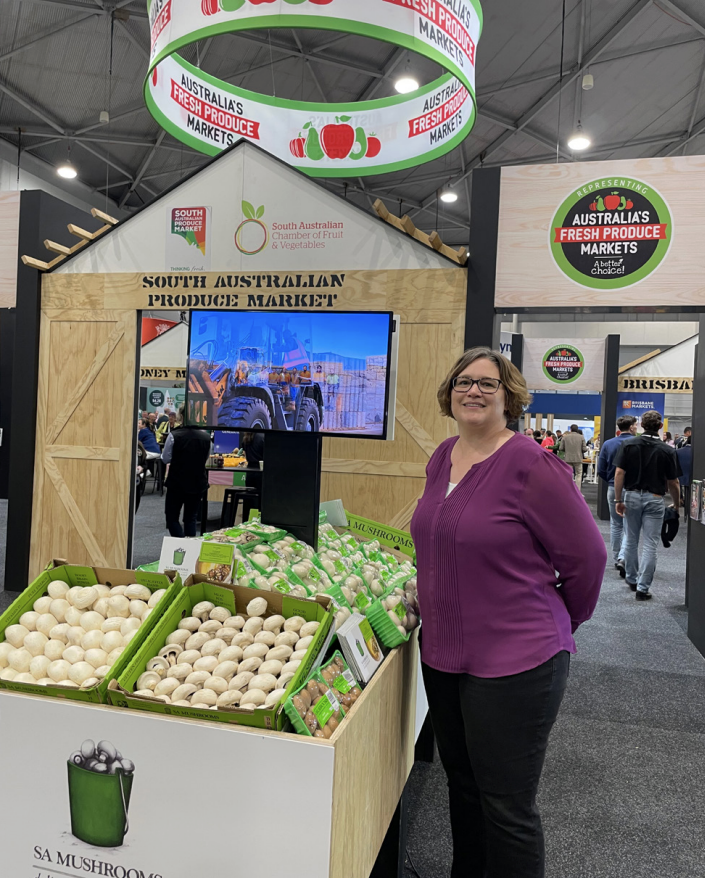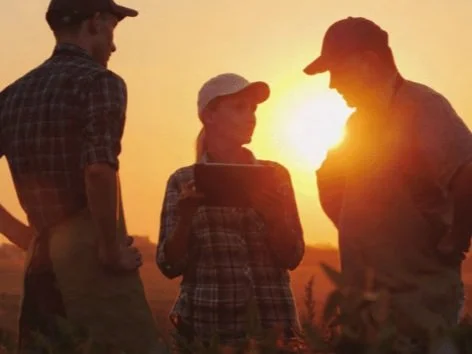Sarah Faulina goes beneath the surface: Compost, fatty acids, and microbial change
In this episode, Dr Jenny Ekman (AHR) sits down with University of Sydney PhD candidate Sarah Faulina, to dig into the topic of fatty acids and the role they can play in improving compost efficiency.
The conversation explores her early-stage research into compost supplements, specifically fatty-acid–rich amendments like canola and flaxseed, and how they influence the microbial communities within compost. While her research will eventually extend to crop yield, it begins beneath the surface – investigating the mechanisms at play and how fatty acids influence bacterial and fungal populations.
With compost amendments often being costly, Sarah’s work into understanding why fatty acids are effective opens the door to more affordable and scalable ways of achieving the same benefits. Thanks to modern testing technologies, researchers can now identify microbial communities in far greater detail, revisiting questions that were previously limited to yield alone.
Curious about how microscopic processes could shape the future of mushroom production? Take a listen to this episode.
Podcast hosted by Dr Jenny Ekman, AHR.
Sarah Faulina is a PhD candidate from The University of Sydney. Her research is focused on understanding how fatty acids influence mushroom growth through the microbial dynamics of compost. Her work examines why fatty acid supplements increased yields in previous research, with the long-term goal of assessing whether these approaches could be viable for large-scale production. Outside the lab, Sarah loves exploring forests and observing wild mushrooms - now with the added joy of understanding what helps them grow.
Rebecca Martin on bacteriophages: Unseen forces behind mushroom growth
Bacteriophages are the most abundant microscopic agents on Earth, yet much about them remains a mystery. In this episode, Dr Jenny Ekman (AHR) sits down with University of Sydney PhD candidate Rebecca Martin to discuss how these microscopic agents could be playing a surprising role in mushroom production.
The conversation covers what bacteriophages are, how they influence nutrient cycling in compost, and how understanding their behaviour could help Agaricus mycelium access nutrients more efficiently. Rebecca takes us inside her meticulous research, using advanced bioinformatics and DNA analysis to profile compost phages with remarkable precision.
Podcast hosted by Dr Jenny Ekman, AHR.
Rebecca Martin: Rebecca is in the final year of her PhD at the University of Sydney, supervised by Michael Kertesz and Gary Muscatello. She previously completed her Bachelor of Science with honours at the University of Sydney, majoring in both microbiology and biology. Her PhD project perfectly combines two of her major academic interests, ecology and weird microorganisms.
Inside Kennett Square, Pennsylvania
Kennett Square, Pennsylvania, is one of the world’s most established mushroom-growing regions, home to a diverse mix of farms and production systems.
Umberto Calvo
During a recent visit to the US for the Mushroom Growers Short Course, Umberto Calvo (AHR) toured several Kennett Square farms, seeing firsthand how producers are tackling challenges around scale, labour, mechanisation, pest pressure, and consistency. From highly automated sites to legacy and family-run operations, one shared issue stood out: managing flies and their impact on nearby communities.
Inside US Mushroom Research & Farming: Umberto Calvo and Meghann Thai share first-hand insights from Pennsylvania Trip
In this episode, Meghann Thai and Umberto Calvo reflect on their recent trip to Pennsylvania, where they attended the Penn State University Mushroom Short Course, visited the Mushroom Research Centre, and toured ten local mushroom farms.
They share insights into how the US are approaching innovation, sustainability, and research, and how these practices compare to the Australian industry.
From composting techniques to casing materials, peat use, and local regulations, Meghann and Umberto unpack what they observed across a wide range of farming systems. They also explore how variations in infrastructure can influence production challenges, including the local fly issues.
Throughout the discussion, they discuss where Australia is leading the way, where there’s room to learn, and how international collaboration could pave the way for future breakthroughs.
Podcast hosted by Dr Jenny Ekman, AHR.
Umberto Calvo from AHR works across a variety of R&D projects in multiple horticultural industries in Australia, from avocados to vegetables. He is the manager of the Marsh Lawson Mushroom Research Unit, in Sydney. Umberto was in the US to attend the Mushroom Short Course at Penn State University and visit local farms to better understand their growing techniques, as well as their composting and casing materials.
Meghann Thai is a Postdoctoral Research Associate in Microbiology at The University of Sydney. Her current research focuses on the microbial dynamics in casing soil and aims to develop a sustainable alternative material for use in casing soil for button mushroom production. Meghann was invited by Professor Michael Wolfin to speak at the Penn State University Mushroom Short Course. Together with her colleague Umberto, she also visited several local farms to gain insight into US practices.
Umberto Calvo on local farming practices with James Ciarrocchi at Sher-Rockee Mushroom Farms, Pennsylvania
In this podcast we follow Umberto Calvo on his trip to the US where he visits Sher-Rockee Mushroom Farms in Pennsylvania to speak with mushroom grower James Ciarrocchi. Their conversation dives into the important intersection of science, sustainability, and innovation, drawing comparisons between US and Australian mushroom farming practices.
James shares positive insights into how the farm is tackling fly control through collaboration with Penn State University, under the guidance of Professor Michael Wolfin. Together, they are trialling the use of Vestergaard nets, an insecticide-infused, innovative material originally developed for malaria prevention in Africa. This breakthrough research takes a closer look at how netted growing rooms perform against traditional controlled environments, aiming to uncover a new way to improve pest control.
The discussion turns to casing materials and how geography, available resources, and tradition can shape mushroom cultivation. James also touches on how the farm are prioritising quality in order to compete with imported product, and the importance of bringing the mushroom story to life through community events and social media. Because it’s more than just farming, it’s about connecting people to the incredible versatility and benefits of mushrooms.
Podcast hosted by Umberto Calvo, AHR.
Umberto Calvo from AHR works across a variety of R&D projects in multiple horticultural industries in Australia, from avocados to vegetables. He is the manager of the Marsh Lawson Mushroom Research Unit, in Sydney. Umberto was in the US to attend the Mushroom Short Course at Penn State University and visit local farms to better understand their growing techniques, as well as their composting and casing materials.
The 2025 Mushroom scholarship fund recipients
The Hort Innovation Mushroom Fund Scholarship Program, delivered by the AMGA, is opening doors for the development of knowledge in mushroom production. Backed by the industry’s R&D levy, this international education initiative gives Australian Agaricus mushroom growers and compost producers the chance to dive deeper into critical topics, learn from global expertise, and bring those insights home to strengthen the entire industry.
In 2025, the scholarships will provide six recipients with partial funding support to participate in the Mushroom Compost Masterclass. Facilitated by Mark den Ouden from the Mushroom Office, the masterclass is comprised of self-paced online learning modules followed by a five day intensive study tour in Europe.
Manipulating Agaricus bisporus developmental patterns by passaging microbial communities in complex substrates
The cultivation of Agaricus bisporus depends on a delicate balance of microbial interactions in the compost – which provides nutrients, and the casing layer – which supports fruiting.
While some bacteria are known to influence mushroom growth, researchers have had little opportunity to study how entire microbial communities shape developmental patterns.
This study explored whether deliberately altering these microbial communities could shift the way mushrooms develop, with the longer-term goal of improving yield management and sustainability.
Mushrooms in China
Insights from Shanghai scientists
One of the key objectives of the Australian mushroom industry is to increase annual consumption from approximately 2.8kg to 4kg per person. Our current consumption is similar to that in the USA, Ireland and the UK, but higher than that in Europe, which is only 1.3kg per person annually.
However, these consumption rates are tiny compared to China. In 2023 China produced around 44 million tonnes of mushrooms. Given a population of 1.4 billion, some estimates put annual consumption at up to 29kg per person.
MLMRU update Spring 2025
A new project has commenced to help secure the future of the MLMRU over the next three years.
The project, Marsh Lawson: Elevating Mushroom Excellence Through Continual Research (MU24005) is a three-year levy-funded project that builds on the previous project and will continue to provide management and research services at the MLMRU.
This investment is designed to help the mushroom industry drive innovation, facilitate sustainable business practices, adopt best practice beyond compliance, adapt to climate change, and foster new expertise through dedicated R&D pathways.
Margin’s Mushrooms - From fizz to fungi, a grower’s journey
In a world increasingly dominated by ‘Big Players’, whether you are running sport, selling chemicals or growing mushrooms, it is refreshing to find a small family business that is not only surviving, but thriving. MushroomLink recently had the pleasure of visiting Margin’s Mushrooms on the beautiful NSW Central Coast, spending time with dynamic owners Kim and Christine Margin.
The mushroom RD&E investment cycle
In the final instalment, Mushroom Fund Research, Development and Extension Coordinator (RDEC) Dr Carly Rosewarne explains how projects are managed after contracting.
Transforming ideas into contracted projects takes considerable effort, as outlined in Parts 1 and 2 of this series.
The hard work does not stop there – in fact, it is just getting started! One of the first tasks for Delivery Partners – the teams that have been contracted to achieve the outcomes – is to prepare their project planning paperwork. This includes a risk management plan, stakeholder engagement plan, communications plan, and a monitoring and evaluation plan.
STRONGER TOGETHER Recap of the 2024 AU + NZ Mushroom Growers Conference
The 45th AMGA Conference in Tāmaki Makaurau Aotearoa/Auckland New Zealand marked the first conference collaboration between the Australian Mushroom Growers Association and the New Zealand Commercial Mushroom Growers Federation. In October, over 150 delegates, representing all parts of the mushroom industry from around the world, met to network and learn.
Interpreting the principles of pinning
“I THINK OF MUSHROOM CULTURE AS A MOSAIC. THERE’S A LOT OF PIECES THAT ALL HAVE TO FIT TOGETHER PERFECTLY IN ORDER TO ACHIEVE THE BIG PICTURE.”
So says Raymond Samp, a lifelong student of the entire Agaricus mushroom mosaic.
Managing pinning is a key piece of that puzzle. This means that understanding the pinning process is essential for growers to control mushroom quality and meet market requirements.
Mushroom levy-funded Nuffield Fellowship
Travel the world and discover new opportunities for the mushroom industry with a prestigious Nuffield Scholarship. Receive a $40,000 bursary to step back from your business and grow your skills.
This is a unique opportunity for professionals across all agricultural sectors—including those in the mushroom industry—to connect with global experts, expand networks, and drive change. Whether you’re interested in cutting-edge production methods, sustainability, or market development, this scholarship allows you to research a topic that can transform your business, community, and industry.
The mushroom R&D investment cycle
In this instalment, Mushroom Fund Research, Development and Extension (RD&E) Coordinator Dr Carly Rosewarne explains how her role supports Hort Innovation to manage the process of converting investment recommendations into contractable projects.
Meet the mushroom R&D SIAP
The Mushroom R&D Strategic Investment Advisory Panel (SIAP) provides Hort Innovation with advice about how mushroom R&D levy funds should be invested to deliver value for levy payers and the industry.
The SIAP oversees the development and execution of the Mushroom Strategic Investment Plan (SIP), provides advice to Hort Innovation guided by SIP investment priorities, identifies and endorses RD&E opportunities, and assists with monitoring and evaluation of levy funded projects. Dr Carly Rosewarne interviewed the panellists and the AMGA CEO to get their thoughts – why they joined, industry challenges and opportunities, fungi facts, and the best ways to enjoy eating mushrooms.
Establishment of the Marsh Lawson Mushroom Research Unit
December 2024 marked the 20th anniversary of the official opening of the Marsh Lawson Mushroom Research Unit (MLMRU) at Sydney University.
The Unit is currently undergoing a major renovation and has quite a history, occupying as it does a prime piece of real estate right at the edge of the Chancellors Oval at Gadigal Green. But how did our small, experimental unit come to be in such a valuable location? And why does it even exist?
Stuart Whitehall and Umberto Calvo on drip irrigation & supplements
In this MushroomLink podcast, Stuart discusses the strategic use of drip irrigation with AHR’s own mushroom grower Umberto Calvo. Umberto has conducted trials with a similar system at the March Lawson Mushroom Research Unit. With the potential to improve later flushes and even create nutritionally enhanced mushrooms, our panel discuss the mixed challenges and solutions offered by drip irrigation for mushrooms.
Podcast hosted by Dr Jenny Ekman, AHR.
Stuart Whitehall from Nutrigain has been working with mushrooms almost his entire life. Growing up on a family farm, he earned his pocket money selling spent compost from the tender age of 9. Over several decades in the industry he has both witnessed and driven a host of innovations, from spawn production and trading to biological pest control with nematodes. Stuart has now diversified into nutritional supplements, including the delivery of liquid solutions through drip irrigation systems.
Umberto Calvo from AHR graduated in 2018 from the Università di Torino in Italy, and recently came to Australia to explore agricultural sciences in a completely different environment. With experience in Precision Viticulture in Spanish wine regions he is interested in precision and data-driven agriculture, remote sensing and horticulture crops. He is currently involved in a wide variety of projects from post-harvest avocado quality to mushroom growing techniques.
Stronger together: Recap of the 2024 AU + NZ Mushroom Growers Conference
The 45th AMGA Conference in Tāmaki Makaurau Aotearoa/Auckland New Zealand marked the first conference collaboration between the Australian Mushroom Growers Association and the New Zealand Commercial Mushroom Growers Federation. In October, over 150 delegates, representing all parts of the mushroom industry .
Mushroom people development strategy
Like many industries across Australia, the mushroom industry is facing challenges in attracting, developing and retaining labour, including skilled and specialist workers. The industry has also been challenged by significant consolidation in recent years.To address this issue, the mushroom industry’s first People Development Strategy was developed to provide a plan for workforce development in the industry.

